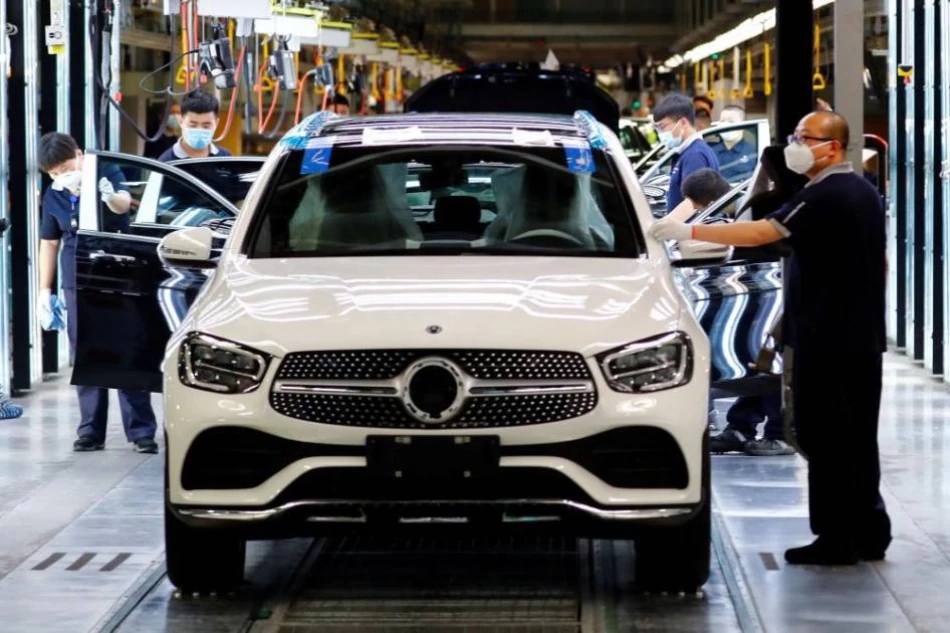
Mercedes-Benz Sales in China Drop 27% in Q3 as Market Challenges Persist
Mercedes-Benz sales in China crashed 27% in the third quarter of 2025, hit by weakening luxury spending and fierce competition from local electric vehicle makers. The German automaker's global performance took a major hit as Chinese consumers turned away from premium imports in favor of cheaper, feature-rich domestic alternatives.
The China slump dragged Mercedes' worldwide sales down 12% for the quarter. US shipments also fell 17%, hurt by uncertainty around President Donald Trump's tariff policies that dampened demand for imported vehicles.
Chinese companies like BYD and Xiaomi are eating into market share once dominated by German luxury brands. These local players offer electric cars packed with advanced features at significantly lower prices than Mercedes, BMW, and Porsche. The competition has sparked a brutal price war that's squeezing profit margins across the board.
China represents the world's largest car market, making these losses particularly painful for European manufacturers. German automakers built their China strategies around premium positioning, but that approach is failing as local brands prove they can deliver quality and innovation at better prices.
The timing couldn't be worse for luxury EV makers. They're already dealing with weak growth in Europe and tariff headaches in the US. Many manufacturers are now cutting costs and shifting investment back toward traditional combustion engines and hybrid vehicles.
Ferrari is taking a different approach. The Italian supercar maker plans to reveal its first fully electric model this week, betting it can buck the trend in the struggling luxury EV segment.
Mercedes' truck division also felt the pressure, with sales dropping 8% to 83,800 vehicles in the quarter. But electric trucks provided one bright spot - sales nearly doubled to 8,600 units, showing commercial buyers are more willing to embrace electric powertrains than luxury car customers.
For investors, these numbers highlight how quickly market dynamics can shift in the auto industry. German brands that seemed untouchable in China just a few years ago are now fighting for relevance against nimble local competitors who better understand what Chinese consumers want.
Most Viewed News

 Omar Rahman
Omar Rahman






